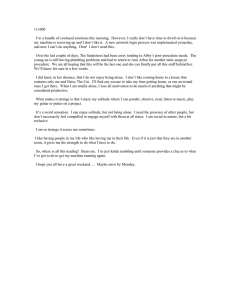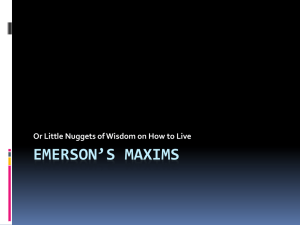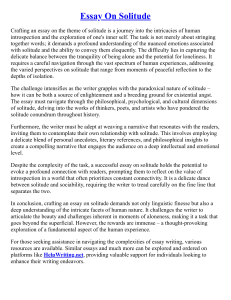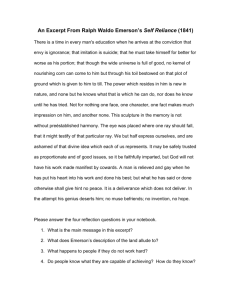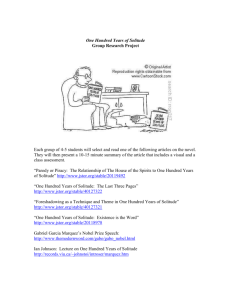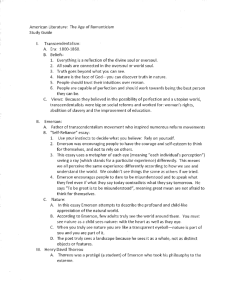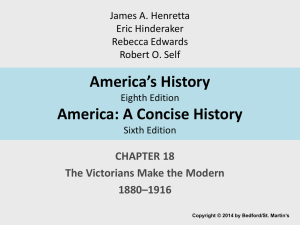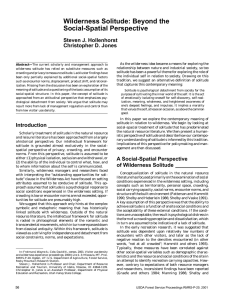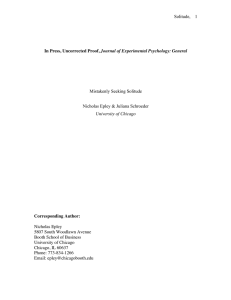Warm up 11/1
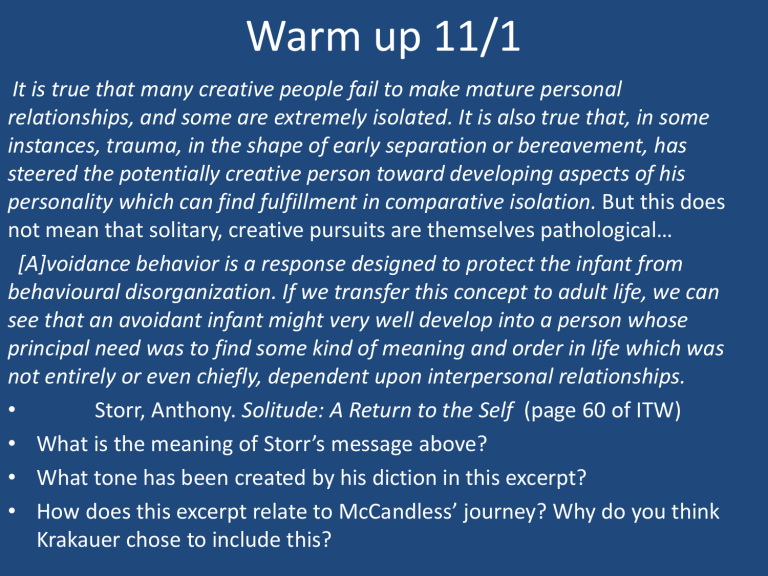
Warm up 11/1
It is true that many creative people fail to make mature personal relationships, and some are extremely isolated. It is also true that, in some instances, trauma, in the shape of early separation or bereavement, has steered the potentially creative person toward developing aspects of his
personality which can find fulfillment in comparative isolation. But this does not mean that solitary, creative pursuits are themselves pathological…
•
[A]voidance behavior is a response designed to protect the infant from behavioural disorganization. If we transfer this concept to adult life, we can see that an avoidant infant might very well develop into a person whose principal need was to find some kind of meaning and order in life which was not entirely or even chiefly, dependent upon interpersonal relationships.
Storr, Anthony. Solitude: A Return to the Self (page 60 of ITW)
• What is the meaning of Storr’s message above?
• What tone has been created by his diction in this excerpt?
• How does this excerpt relate to McCandless’ journey? Why do you think
Krakauer chose to include this?
Today’s agenda
• Complete “Society and Solitude” close reading activity
• Analyze a short (video) argument
• Homework: finish Into the Wild. Final Socratic seminar on Monday; test on Tuesday.
Complete study guide.
Questions- “Society and Solitude”
Close reading of "Society & Solitude“- Support all answers with text
A. Reflect upon what you know of transcendentalism and what Emerson promotes.
Predict -- what will he claim in this essay?
B. Read & annotate the introductory poem to yourself. Answer the following:
1. Where and how in the poem are the main ideas of Society and Solitude introduced?
2. What aspects of transcendentalism are reflected in the poem?
Questions- “Society and Solitude”
C. Read and annotate the essay. Answer the following:
3. After the poem, how does Emerson begin the essay (what structural device), and how does he move into his main idea? Explain.
4. What comparisons and examples does he use to develop and support his claims?
5. What claims does he make?
6. What aspects of transcendentalism and selfreliance are reflected in his essay?
Questions- “Society and Solitude”
D. Read aloud with class. Reflect upon previous answers. Answer the following:
7. What is his main claim (main idea, thesis)? Is the claim implicitly or explicitly stated?
8. How do you personally interpret the main claim?
9. In what ways did McCandless's actions or beliefs reflect Emerson's claims?
10. How might you relate Emerson's message to your own life?
TED talk: Graham Hill
• http://www.ted.com/talks/graham_hill_less_s tuff_more_happiness.html
• Complete SOAPSTone/handout
